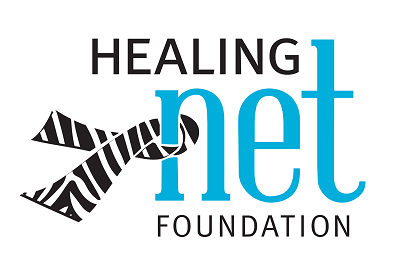2018 Healing NET Summit--Chapter One
/Definition of Summit—“the topmost level attainable”
This definition of the word “summit” provided by the Merriam Webster dictionary seems to fit the goals of what has become an annual gathering of physicians, nurses, nurse practitioners, and researchers invested in healing patients with neuroendocrine cancer. The International Healing NET Summit hosted it's third year of top NET experts from across the United States and Europe. These medical professionals accept the invitation to attend from their busy schedules, and stay on task for two full days beginning at 7am each morning, and continuing well past dinner into the evening hours. “Working Together” was the 2018 theme, and the faculty listened and learned about the progression of new treatments and procedures, and discussed and debated in working groups various topics around unmet needs identified in previous meetings. Here are some highlights—
- The timeline of how Lutathera (PRRT treatment just approved in January by FDA) began with Dr. Eric Krenning of the Netherlands.
- New uses of peptides on the horizon that could continue to improve the PRRT treatment as outlined by Dr. Richard Baum of Germany
- Information on the new clinical trial for TAT (Targeted Alpha Therapy) just opened in the U. S. from Dr. Ebrahim Delpassand.
- Clinician and patient experiences since Xermelo (Telotristat) was approved a year ago for carcinoid syndrome symptoms. We will be sharing some perspective from medical writers next week.
There’s a lot to process as Healing NET Foundation works to fulfill its mission to optimize the care of those with neuroendocrine cancer through the education of and collaboration among physicians, health care providers, patients, and caregivers.
Over the course of the next several months, I want to focus on some of the breakout sessions that looked at SOLUTIONS to fill gaps in physician to patient care. Obviously physician education is a big un-met need, and each group was asked to provide material for the next edition of our NET Primer for Healthcare Professionals. We have set a goal to have that finished by this Fall. Other topics included how to recruit new health care professionals to take care of the NET community in the future, how do you recognize a NET center, and how can physicians help patients understand and have easy access to clinical trial information?
One group is already organized to continue the work past the Summit. Support group leaders and physicians sat down together to figure out the barriers that prevent good physician and patient communication, and find solutions to resolve the breakdowns. They began with a survey of some 50+ patients who were asked “What is the most challenging topic to discuss with your care team?" The answer surprised most of the physicians in the room—“TREATMENTS”. “We talk to our patients about treatments all the time!” said one doctor. When the patient advocates in the room were asked “Why do you think patients are challenged communicating with their doctors,” the answer was not that surprising—“LACK OF TIME”. Can tools be developed to make the most of the limited time in the physician's office? Who will handle patient follow-up questions after the visit?
It may have been a bit disconcerting for the physicians to hear that a Healing NET survey showed the number one source for patients to find out about their disease was the internet. In response the doctors asked, “How do we know what websites and other online resources have sound and reliable information?” Good question. Is there a way to vet websites so both physicians and patients are comfortable recommending certain sources, and how is that done? How can physicians be assured support groups have good practices, and if so, will they get involved and support the support groups?
Setting expectations on both sides and creating tools that help physicians and patients understand the expectations were seen as very important tasks. Challenging work that the group is ready to tackle.
What do you see as the biggest challenge in patient-physician communication, particularly as it applies to Neuroendocrine cancer care? What would you like to see included in this Healing NET task force discussion in the year ahead? Patient, Caregiver, or Health Care Professional perspective, we would love to hear your comments below or Email us feedback@thehealingnet.org.





